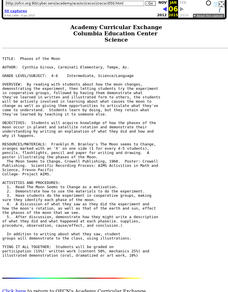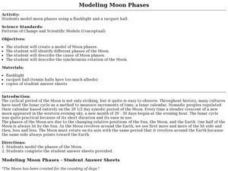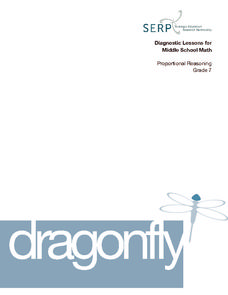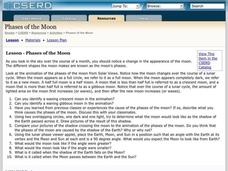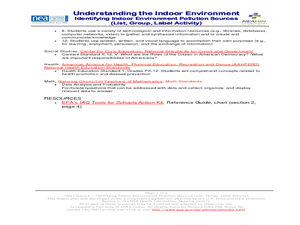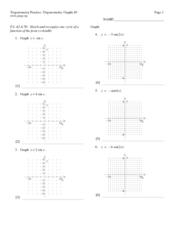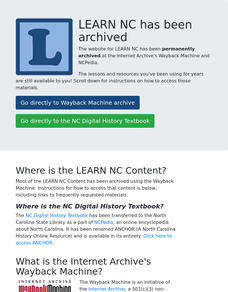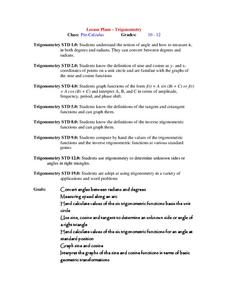Curated OER
Phases of the Moon
Pupils research and identify the phases of the moon. They consider the moon's rotation, as well as that of the earth and sun. They write a description of their research and present it to the class.
Curated OER
Phases of the moon
Third graders name the phases of the moon. For this moon phase lesson, 3rd graders listen to the story The Moon Seems to Change and they discuss the different moon phases. They take oreos and split them apart and look at the cream to see...
Curated OER
Modeling Moon Phases
Learners identify the phases of the Moon and the synchronous rotation. In this hands on lesson students will create a model of the Moon.
Curated OER
Particle Model of Solids, Liquids, and Gases
Display the arrangement of molecules in solids, liquids, and gases. Demonstrate how the addition of heat energy results in greater molecular motion and therefore a change of phase. Give examples of heat conductors and insulators, and...
Curated OER
Dragonfly
The speed of a dragonfly brings math into the real world as your learners collaboratively see the value in calculating unit rates in direct proportion problems. This six-phase lesson encourages you, as the teacher, to only ask questions...
Concord Consortium
Boiling Point of Polar and Non-Polar Substances
Go to extremes to illustrate boiling point! Junior chemists explore the effects of heating and cooling on polar and non-polar substances. The interactive allows users to raise and lower the temperature, set specific temperatures, and...
Discovery Education
Cool It!
Adjust the melting time of ice without varying the temperature! Learners experiment with different materials to decide how the materials affect the rate an ice cube melts. They then connect their findings to the conductivity of each...
Virginia Department of Education
The Ratio of Surface Area to Volume
Demonstrate the ratio of surface area to volume in your high school class by using phenolphthalein, gelatin, and an onion. Intrigue the class by leading a discussion on osmosis and diffusion, then making "scientific jello." Participants...
Curated OER
Kitchen Chemistry
Fifth graders examine both physical and chemical changes, and how to identify the difference between the two. They observe the changes that occur in butter when it is exposed to heat and cold, heat energy. In their notebooks, they write...
EngageNY
Grade 9 ELA Module 4, Unit 1, Lesson 6
How do writers create a specific tone in their text? As class members continue their study of Sugar Changed the World, they focus on the words and phrases that Aronson and Budhos use to create that tone in their descriptions of arduous...
Curated OER
Chapter 3 Worksheet Matter
In this matter worksheet, students answer ten questions about matter including the phase of matter, mixtures and how they are different from compounds, the physical and chemical properties of matter and the difference between homogeneous...
Curated OER
Phases of the Moon
Students create a model of the phases of the Moon by giving students pictures of the phases of the Moon, a picture of the Earth, and a picture of the Sun. They then take a picture, and stand in correct place to make the phases of the...
Curated OER
Physical and Chemical Changes in Food
Ninth graders study food mixtures and substances in order to identify atoms, molecules, elements, and compounds and recognize physical changes that take place in foods.
Curated OER
Identifying Indoor Environment Pollution Sources (List, Group, Label Activity)
Students identify the cause of indoor air pollution. In this indoor air pollution lesson, students list, group, and label sources of indoor pollution. They brainstorm a list of all of the indoor pollutants they can think of before...
Marcia's Science Teaching Ideas
Observing the Moon Activity
In this moon worksheet, students observe the moon on three consecutive nights and draw their observations. They answer questions about the phases of the moon and its position in the night sky. They identify the position of the sun, earth...
Curated OER
Trigonometry Practice
In this trig worksheet, students draw graphs of trig functions and identify the cycle of the function. They discuss period and phase shift. There are 9 questions with an answer key.
Curated OER
Melting and Freezing of Water
Students differentiate the three states of matter. In this chemistry lesson, students analyze graphs of heating and cooling curve of water. They complete a lab report and discuss results.
Curated OER
Chemistry E3 Lesson Plan
Ninth graders perform a series of experiment to investigate heat transfer and phase changes. In this physical science lesson, 9th graders identify and calculate the different subatomic particles. They explain the importance of scientific...
Curated OER
The Same But Different
Fourth graders identify the characteristics of a simple physical change. They describe objects by the properties of the materials from which they are made. Students discuss the different states of matter and their distinct physical...
Curated OER
The Starry Night Time and Day Time
Second graders complete a unit of lessons on the solar system. They complete various art projects inspired by Van Gogh's 'Starry Night,' create a moon phases book, create a moon phase wind chime, develop a timeline of space exploration,...
Curated OER
Trigonometric Graphing
Students analyze graphs. In this trigonometric lesson, students identify the different graphs of sine, cosine and tangent. They graph the inverse of those trig values and identify their properties such as phase shift and period.
Curated OER
Dealing with Growth and Change
Students discuss the right and wrong actions of a young Navajo boy. Using that information, they compare and contrast his culture to their own. In groups, they create a newspaper or poster showing the cultural contributions of the...
Curated OER
Checking the Weather
Students check the weather on the web site, draw what they see on the calendar (sunny, cloudy, rainy, snowy) and look outside to see if they think the weather on the web site is correct.
Curated OER
Trigonometry
Students investigate angles converting them from radians to degrees. For this trigonometry lesson, students work with angles and the six different trig ratios. They graph the functions representing each trig functions and identify the...


